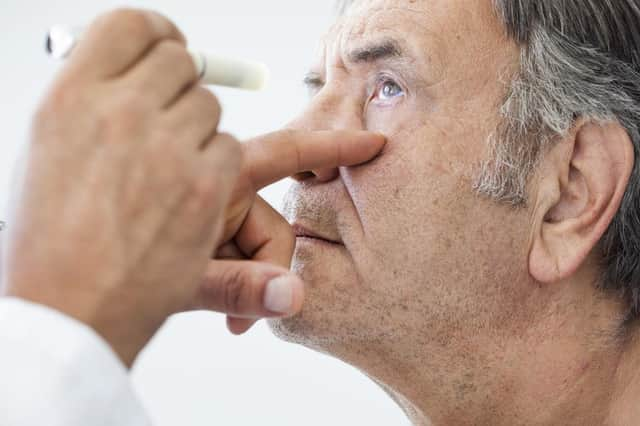Does coronavirus affect eyesight? Vision and Covid-19 explained as PM says he is ‘having to wear glasses’


But does Covid-19 affect eyesight? Both Prime Minister Boris Johnson and his chief aide Dominic Cummings have claimed this week that having Covid-19 affected their vision.
Here’s what you need to know about the link between coronavirus and eyesight, according to experts.
What did Boris Johnson say?
Advertisement
Hide AdAdvertisement
Hide AdDuring a Downing Street press conference on 25 May, Prime Minister Boris Johnson said that he was having to wear glasses “for the first time in years” following his experience with the virus.
He said: “I’m finding that I have to wear spectacles for the first time in years - because I think of the likely effects of this thing - so I’m inclined to think there’s some… I think that’s very, very plausible that eyesight can be a problem associated with coronavirus.”
His comments about eyesight came after top adviser Dominic Cummings said he had made a 60-mile round trip to Barnard Castle in Durham to test his eyes to ensure they were good enough to drive back to London, after he contracted the virus.
Cummings said: “My wife was very worried, particularly as my eyesight seemed to have been affected by the disease. She did not want to risk a nearly 300-mile drive with our child given how ill I had been.
“We agreed that we should go for a short drive to see if I could drive safely, we drove for roughly half an hour and ended up on the outskirts of Barnard Castle town.”
Does coronavirus affect eyesight?
The NHS does not list changes in eyesight as a sign of coronavirus, nor does the official guidance from the UK government.
The official symptoms the public have been warned about are:
- A high temperature, meaning you feel hot to touch on your chest or back
Advertisement
Hide AdAdvertisement
Hide Ad- A new, continuous cough, which means coughing a lot for more than an hour or three or more coughing episodes in 24 hours
- Loss in change to your sense of smell or taste, meaning if you’ve noticed that you cannot smell or taste anything, or that things smell and taste different to normal
The NHS says: “Most people with coronavirus have at least one of these symptoms.”
However, The Royal College of Ophthalmologists and College of Optometrists jointly published a statement that linked Covid-19 and conjunctivitis.
The statement said: “It is recognised that any upper respiratory tract infection may result in viral conjunctivitis as a secondary complication, and this is also the case with Covid-19.
“However, it is unlikely that a person would present with viral conjunctivitis secondary to Covid-19 without other symptoms of fever and/or continuous cough and/or loss of, or change in taste or smell.”
The World Health Organisation (WHO) guidelines include more symptoms, which are not listed in the UK guidelines.
In its list of “less common symptoms”, it includes conjunctivitis.
What is conjunctivitis?
Advertisement
Hide AdAdvertisement
Hide AdThe NHS explains that conjunctivitis, also known as red or pink eye, normally affects both eyes.
Conjunctivitis can make your eyes:
- Bloodshot
- Experience a burning feeling, or feel gritty
- Produce pus that sticks to your lashes
- Feel itchy
- Water
The NHS recommends the following steps to help ease conjunctivitis symptoms:
- Boil water, let it cool and use a clean cotton wool to gently rub your eyelashes to clean away crusts
- Hold down a cold flannel on your eyes for a few minutes to help them cool down
If your symptoms haven’t cleared up after two weeks, you should make an appointment with your GP. Your treatment can vary depending on the cause of the conjunctivitis.
If it’s a bacterial infection, you may need antibiotics - however, antibiotics will not work if it’s caused by a virus or an allergy.
If any of the following happen, you should phone 111:
- Pain in your eyes
- Sensitivity to light
- Changes in your vision, like wavy lines or flashing
- Intense redness in one or both eyes
- A baby less than 28 days old has red eyes